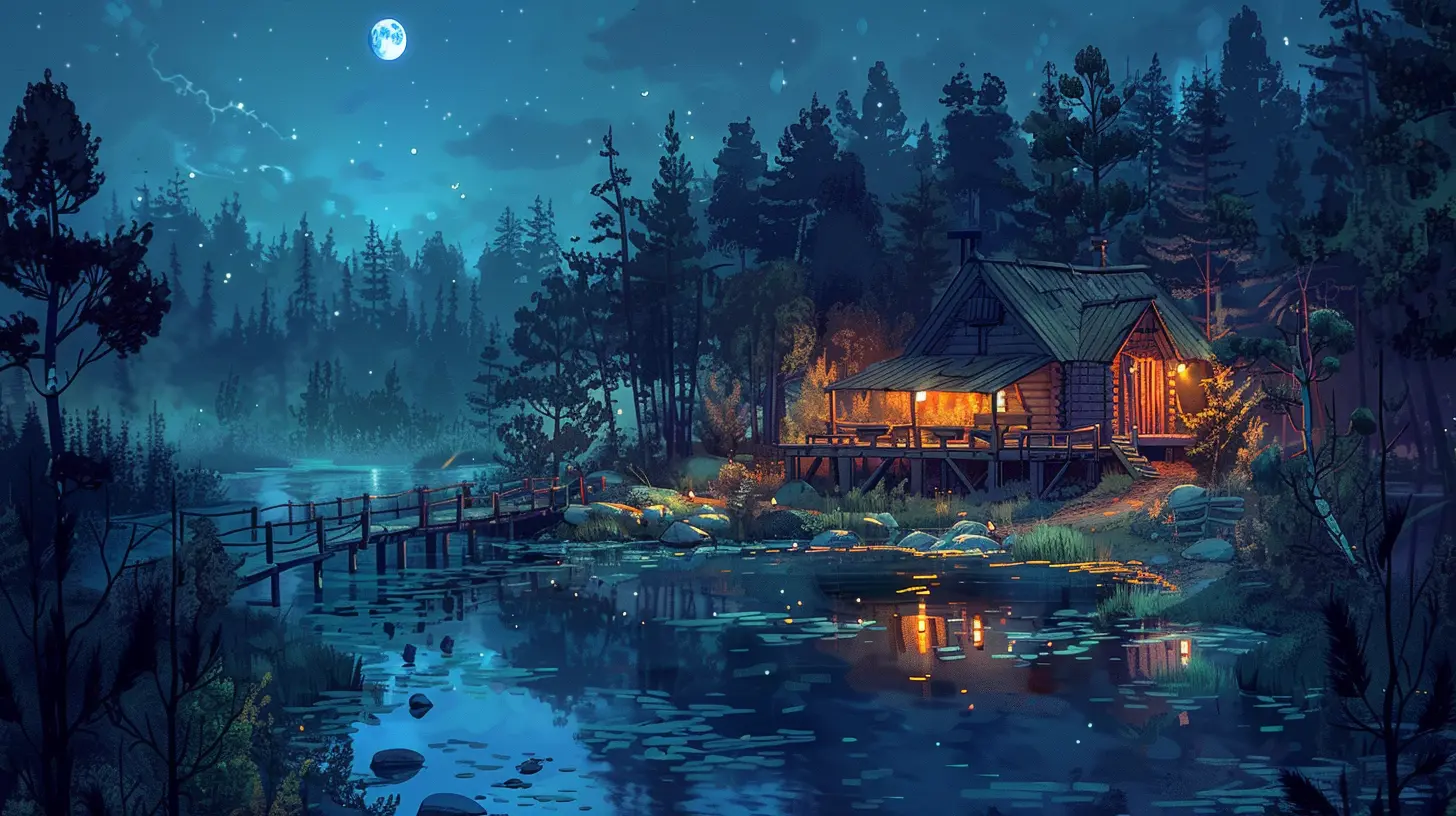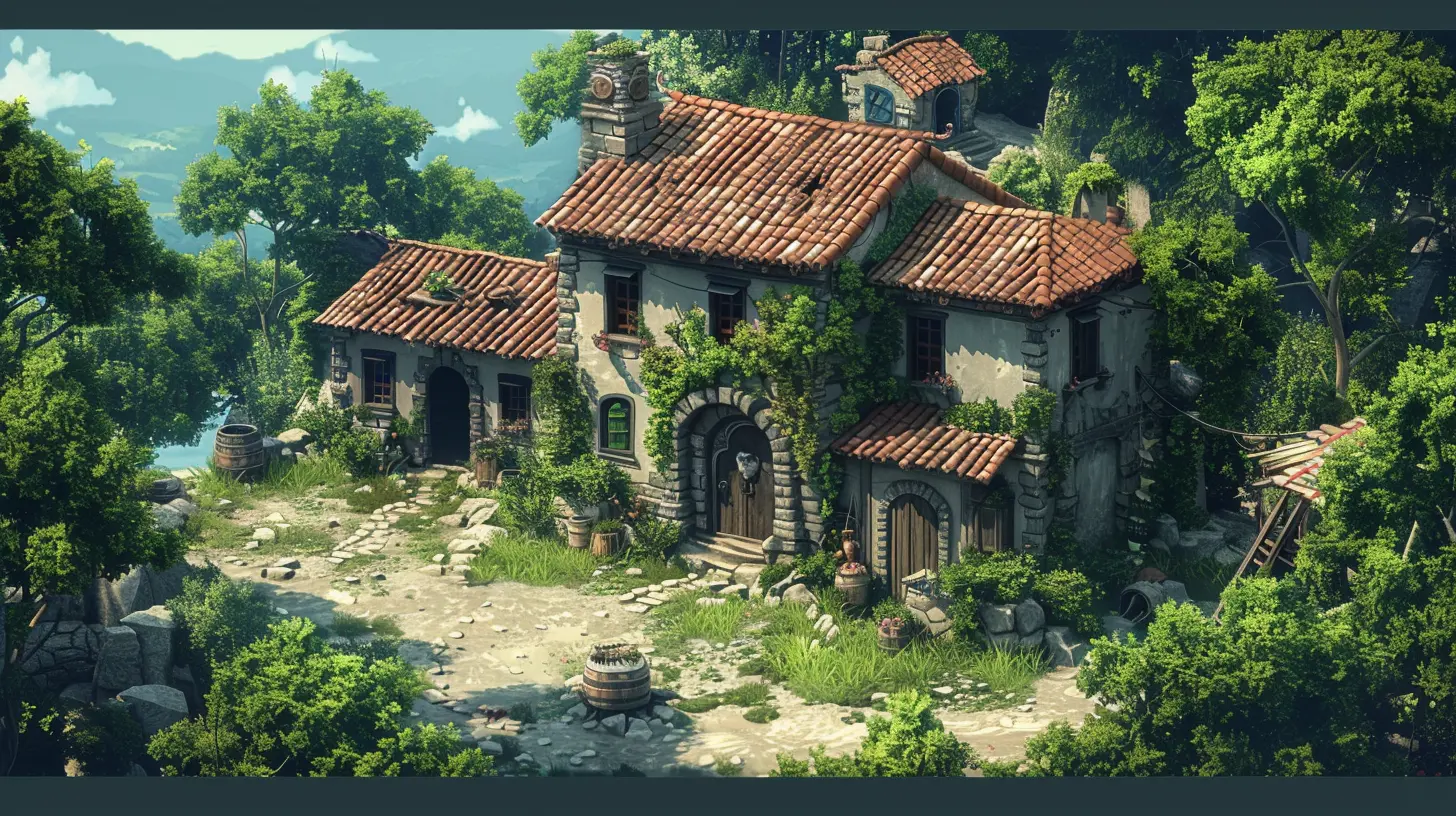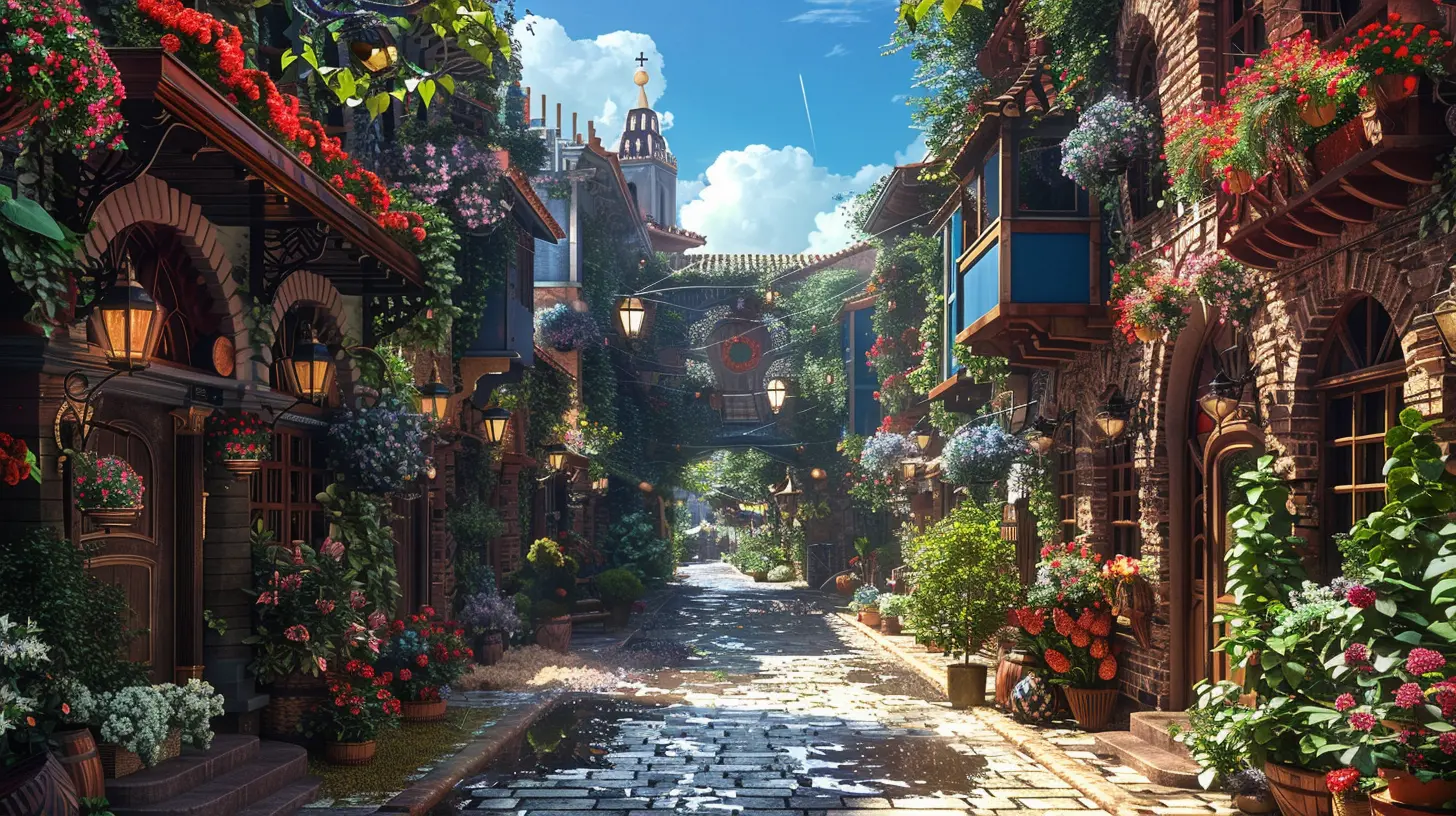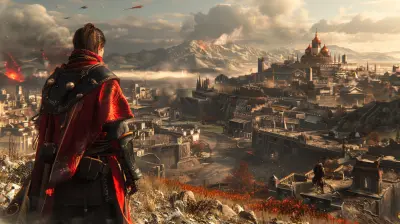The Casual Game Communities You Didn’t Know Existed
12 August 2025
Let’s be honest—when you think of gaming communities, your first thoughts probably lean toward massive esports tournaments, fast-paced shooters, or maybe the endless grind of MMORPGs. But let me clue you in on a little secret: casual gamers are everywhere, and they’re building some incredibly tight-knit, fun, and surprisingly passionate communities of their own. And guess what? Most folks have no idea these cozy corners of the gaming world even exist.
So, buckle up! We're diving deep into the casual game communities you didn’t know existed. Whether you’re a laid-back mobile gamer, a cozy farming sim fanatic, or someone who just loves a good match-3 puzzle, there’s a whole universe you’ve been missing out on. And trust me, it’s worth checking out.
What Exactly Is a Casual Gamer?
Before we jump into the communities themselves, let’s clear something up. What the heck is a casual gamer?A casual gamer isn’t glued to their controller 10 hours a day. They might game while sipping on a latte or in between meetings. It’s about playing for fun—no stress, no pressure, just pure enjoyment. It could be someone who checks into Animal Crossing every morning or someone who plays Candy Crush on their lunch break. Casual gaming is all about relaxing and having fun on your own terms.
But here’s the twist: just because it’s “casual” doesn’t mean it’s not deeply engaging or community-driven.
1. The Cozy Cult of Stardew Valley
Ah, Stardew Valley—where farming meets friendship meets I totally didn’t expect this game to take over my life. What started as a simple farming simulator has grown into a vibrant online community filled with modders, fan artists, and theory-crafters.There are entire Reddit threads and Discord groups dedicated to who the best marriage candidate is (spoiler: it’s Abigail, fight me), how to min-max your crops, and even full-blown fan-made events like in-game “holidays.”
People plan their entire virtual year, share layouts like interior decorators, and some even roleplay as their Stardew character full-time. It sounds intense, but it’s actually one of the most welcoming, wholesome communities out there.
2. Match-3 Mafia: Candy Crush and Its Addicted Inner Circle
You’ve probably laughed at Candy Crush players. “It’s just a mobile game,” right?Wrong.
The Candy Crush community is massive, and some fans are hardcore. We’re talking strategy guides for tough levels, breakdowns of the best boosters, and even alliances where players swap tips and cheer each other on. Facebook groups with hundreds of thousands of members obsess over every update.
Plus, devs from King (the creators) promote community contests, sneak peeks, and challenges that bring players together. It’s not your grandma’s game anymore—even though, yes, your grandma probably still plays it.
3. The Simmer Society: Sims Players Unite
The Sims community is a beast—but it often flies under the radar unless you’re already in the know.From building competitions to legacy challenges (raising generations of Sims without cheats—good luck), folks in this community treat Sims like part art project, part soap opera. Some players treat it like Instagram for virtual lives, creating dramatic storylines with screenshots that rival real-life influencers.
There are even YouTubers and streamers who’ve built entire careers around their Sims channels, showcasing custom mods, builds, and hilarious in-game drama. The Sims isn’t just a game—it’s a lifestyle.
4. Word Game Warriors: Scrabble, Wordle, and the Puzzle Fanatics
Think "word games" and your brain probably goes straight to quiet Sunday mornings and mugs of tea. But behind the scenes, these communities are wildly active.Wordle sparked a frenzy, but it didn’t stop there. There are forums and Facebook groups where players share their daily results, discuss word theories, and launch spin-off challenges. Meanwhile, classic games like Scrabble or Words With Friends still have devoted fans who play competitively—yes, really.
There’s fierce discussion over strategy, official rule clarifications, and even custom dictionaries. If you thought it was just about spelling, think again.
5. Clickers and Idlers: The Silent Cult of “Do-Nothing” Games
Ever played a game where you… don’t really do anything?Clicker games and idle games like Cookie Clicker, Clicker Heroes, or Realm Grinder have low interaction but surprisingly high satisfaction. And their communities? Super engaged.
They dive into math-heavy spreadsheets, min-maxing strategies, and efficiency builds. Reddit threads break down timelines for optimal progression. It’s like Wall Street for pixel cookies.
Even though these games run in the background, the players are anything but passive.
6. Cozy Gamers: The Wholesome Aesthetic Movement
“Cozy games” is more of a vibe than a genre—it includes titles like Spiritfarer, Animal Crossing, Unpacking, and even A Short Hike.These communities are all about relaxation, positivity, and a strong sense of emotional connection. Twitter and Reddit are full of players sharing screenshots, stories, and wholesome moments. There are entire hashtags like #CozyGaming or #WholesomeGames dedicated to celebrating this movement.
Cozy gamers also love organization—expect to see planners, journal spreads, and gaming stations that look like something out of Pinterest.
7. The Card Cult: Solitaire, Hearthstone, and Deck Building Delight
You might think Solitaire is just for killing time. But let me tell you, Solitaire streamers are a thing, and competitive Solitaire is real.Plus, there’s a whole subculture around card-based casual games like Hearthstone (on the more strategic end), Slay the Spire, or casual mobile card titles. These communities get into the nitty-gritty—deck builds, RNG discussions, and long theory sessions on the best combos.
Whether you’re a casual tapper or a deck-building mastermind, there’s probably a forum or subreddit with people who think exactly like you.
8. Hidden Object Hype: The Hunt is On
You remember those hidden object games your aunt used to play? “Find the fox, the spoon, and the dragonfly in this Victorian wallpaper?” Yeah, those.Well, turns out there’s a huge community behind them. Games like June’s Journey or Hidden City have loyal fans who strategize over energy systems, perfect scores, and event-based puzzles.
There are competitions, walkthroughs, and even custom fan-made visual guides. It’s all about perfecting your eye and training your brain—and people LOVE helping each other out.
9. Township & Co: The City Builder Addicts
Want to build your perfect little digital town? There’s a community for that too.Games like Township, SimCity BuildIt, and Megapolis have drawn surprisingly strategic players who compete in regular regional contests and share layouts that balance beauty and function.
There are Facebook groups full of photos, tips, and community links. It’s like urban planning, but with a lot more cows and candy factories. And the passion? Real. Town mayors don’t joke around with their designs.
10. Merge Game Nerds: Epic Combos & Obsessions
Merge games are addictively satisfying. You combine items (like eggs or dragons) to evolve them into bigger and better forms. Sounds simple, right?But the merge gaming community is fiercely active. Games like Merge Dragons, Merge Mansion, and EverMerge inspire daily check-ins, event masteries, and Reddit threads with highly optimized board layouts. Some fans even create visual guides or Excel sheets to time their merges perfectly.
It’s part puzzle, part strategy, and a whole lot of “just one more merge…”
Why These Communities Matter
You might think casual games are just a way to pass time on the bus, but these communities prove that even simple games can build deep connections. People make lifelong friends over pixelated crops, trade power-up secrets, and share wholesome stories about how these games helped them cope with anxiety, loneliness, or just plain boredom.Even better, these communities are often more inclusive, less toxic, and way more beginner-friendly than some of the hardcore gaming spaces out there. It’s less about competition and more about community.
How To Join These Communities
Ready to dive in? Good! Here's how you can get involved:- Reddit: Subreddits like r/StardewValley, r/CozyGamers, or r/MergeDragons are gold mines.
- Discord Servers: Most popular games have official and fan-run servers full of friendly folks.
- Facebook Groups: Old school, but perfect for games like Candy Crush or Township.
- Twitch & YouTube: Tons of streamers and content creators focus on casual titles with welcoming chatrooms.
- Game Forums and Subsites: Many developers host their own forums, complete with event calendars, walkthroughs, and community challenges.
You don’t need to be a pro. Just jump in and start chatting!
Final Thoughts
Gaming isn’t just about high scores and kill streaks. Sometimes, it’s about planting digital pumpkins, solving picture puzzles, and building the perfect pixel village. The best part? You’re never alone. There are millions of casual gamers out there just like you—kind, chill, and more than happy to share a laugh or strategy tip.So the next time someone says "casual gaming isn't real gaming," show them your cozy community. Then go back to reorganizing your digital living room or crushing level 4,372 of Candy Crush… like a boss.
all images in this post were generated using AI tools
Category:
Casual GamesAuthor:

Whitman Adams
Discussion
rate this article
2 comments
Niva Hill
Love discovering hidden gems in casual gaming! These communities bring such joy and connection—can’t wait to explore more!
December 11, 2025 at 5:21 PM

Whitman Adams
Thank you! We're thrilled you enjoy exploring these hidden gems—there's so much joy and connection to be found in these communities! Happy gaming!
Sienna Wright
This article highlights the often-overlooked niche communities within casual gaming, showcasing their unique interactions and shared passions. By examining these hidden gems, we gain insight into the diverse landscape of gaming culture and the varying motivations driving players today.
August 17, 2025 at 5:08 PM

Whitman Adams
Thank you for your insights! I'm glad the article resonates with you and sheds light on these vibrant communities in casual gaming.


